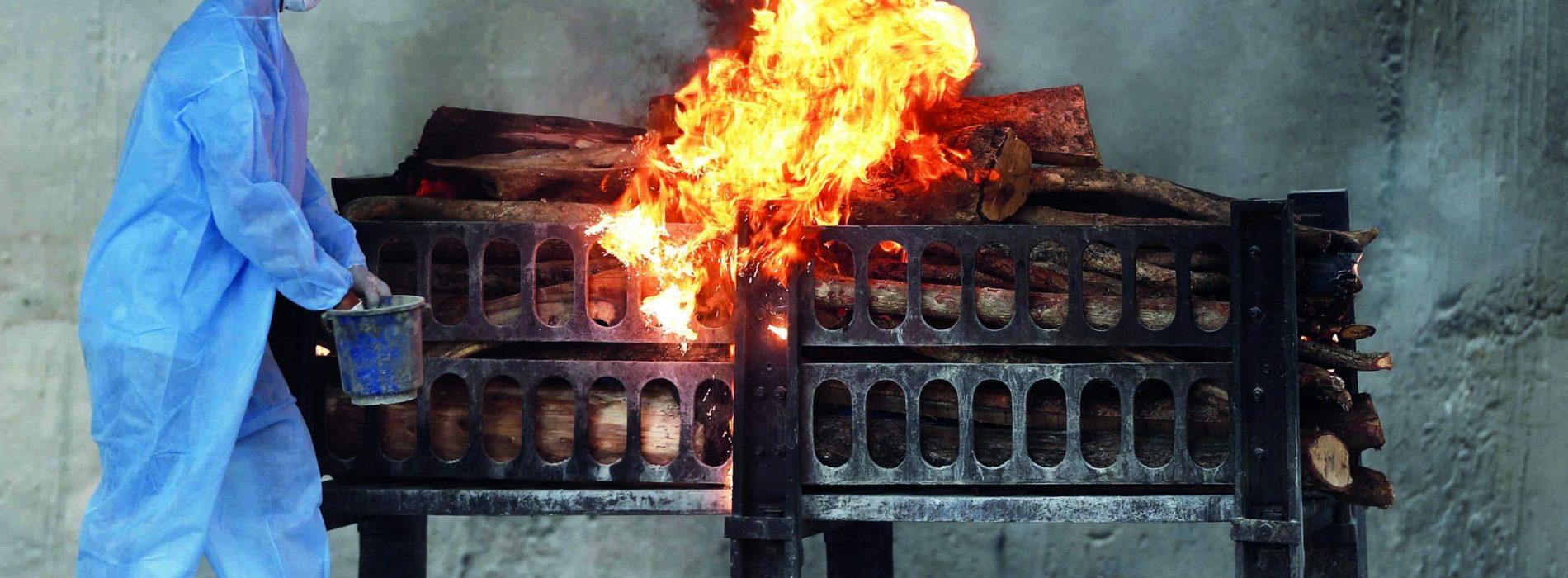Africa-Press – Lesotho. IT is largely viewed as taboo, but others are beginning to adopt cremation over traditional burials in signs that local people could slowly be ditching some practices that have defined Basotho for ages.
Many of those taking to cremation are so-called sophisticated people living in urban areas with higher incomes than rural folk who still religiously cling to ancestral customs and regard cremation as an unwanted foreign culture.
There is no cremation facility in Lesotho and families seeking such services have to travel to Bloemfontein in neighbouring South Africa where crematoriums are available.
Cremation is the process of disposing of a dead body through burning, rather than the traditional underground burials that are synonymous with local culture.
It is usually carried out after a simple funeral ceremony. Cremators generally comprise a main cremating chamber, a secondary air chamber and a holding chamber.
The coffin is cremated within the main chamber. At the completion of the main phase of the cremation process, the cremated remains are moved into the holding chamber to finalise the process.
Some families keep the ashes of their loved ones in their homes in a container while others just throw them away. Papali Tsuinyane, a resident of Berea, is one of those prepared to discard the old ways.
“I plan to be cremated when the time comes to meet my ancestors,” said the 63-year-old. Tsuinyane said she prefers cremation to traditional burial to avoid too many expenses.
“From the day a person dies, family members flock to the bereaved family’s home until the deceased is laid to rest. They come with their grandchildren…this just increases funeral expenses,” she said.
In her opinion, it is all about the interests of elder family relatives who would want to slaughter a cow under the pretext that it is cultural to do so.
“After the funeral the children are left to fend for themselves because there would be no money left for them. It is for this reason that I want to be cremated when I die,” Tsuinyane said.
Tsuinyane challenged Basotho to change their mind-sets and choose cremation, adding that one of her late cousins was cremated. “I do not know why she chose to be cremated but I think her reasons could be similar to mine,” she said.
Some question that argument about cremation being cheaper than traditional burials. A study conducted in May 2017 showed that the average cost for a cremation was at that time around M7 000.
A private cremation could cost about M5 000, while a chapel cremation could cost anything upwards of R9 000. This is minus the cost of transporting the body to South Africa for the process.
On average traditional burials cost approximately M10 000. Others, such as Advocate Borenahabokhethe Sekonyela, a Customary Law and Environmental Law expert, cite religious and environmental issues for their opposition to cremation.
Cremation, said Advocate Sekonyela, is a new phenomenon in Basotho culture. “It was never there (in the past),” he said, claiming that Basotho culture “is associated with the laws of God”.
God’s law says we are of the soil and we will return to the soil so it is wrong to cremate the dead, he said. He said serious concern is emerging in India where cremation is common due to environmental issues. India, he said, is experiencing a serious problem of sea waste because of the ashes that are dumped into the sea.
According to the National Funeral Directors Association, cremation requires a lot of fuel, and it results in millions of tons of carbon dioxide emissions per year—enough to make some environmentalists rethink the whole process.
Some funeral parlours that preferred anonymity claimed that it seems it is becoming “fashionable” for families to have their loved ones cremated, in part as a status symbol.
“People think they are sophisticated when they are cremated or have their departed family members cremated,” one official at a funeral parlour said.
It says originally this was never practised by Basotho or Africans but now most people want it. Another issue, said the official, is the rampant desecration of cemeteries.
“Cemeteries are no longer respected as they used to be in the past. Basotho used to have a deep respect for cemeteries. They were regarded as revered places, but not anymore,” said the official.
It is now a common sight for cemeteries to have overgrown grass and vegetation while cattle can be seen grazing there, which was unheard of before. *Limakatso Khatala said her late father was cremated, although family members weren’t happy about it.
“My father just told us that he wanted to be cremated when he dies.
It was not our wish as a family. It was him who chose so. We had no option but to do as he wished. We sprinkled the ash in the yard and it ended there,” she said.
Kutloano Sello of Lesotho Funeral Service (LFS) said his father had already written a will before he died stating his wish to be cremated. His father, Lewis Joas Sello, died in 1999.
He said his father thought cremation would bring “closure” as “he wanted his family to be sure that he was dead. ” “He wanted us to see that he was no more because he was burnt,” he says. Sello said the funeral parlour has seen many people asking for their dead family members to be cremated.
For More News And Analysis About Lesotho Follow Africa-Press






